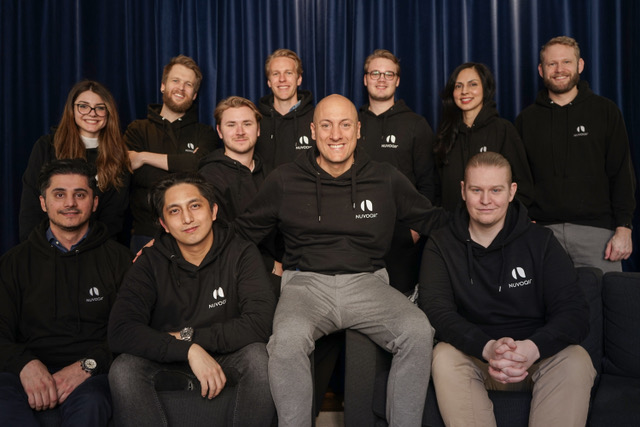You might well have a sleep app that tracks your sleep. I use Sleep Cycle, and have found it has started to even tell me when I cough during the night. It turns out you can run machine learning over how you might cough in the night to detect changes in the way you cough. That data could inform people with ongoing respiratory illnesses and help them manage their health.
This is part of the idea behind NuvoAir, which uses both an app to listen to your night-time coughing and other health data to do just that.
The Boston-based startup has now raised $12 million in a Series A funding led by London-based AlbionVC.
Perhaps because the COVID-19 pandemic made people more aware of respiratory complaints, NuvoAir claims it experienced 500% growth in the first quarter of 2021.
The round was also participated in by KAYA (formerly Enern), Amino Collective and existing shareholders Spiltan, Industrifonden and Novartis Pharma AG (dRx Capital).
How NuvoAir works is by combining the data from a Bluetooth-enabled spirometer that remotely monitors lung function; a sensor that attaches to asthma and COPD inhalers; and an integration with Fitbit devices. It also includes data from NuvoAir Cough, which assesses changes in nighttime coughing.
Its business model is enabling health plans, insurance companies and healthcare systems to reduce the cost of managing their most severe respiratory patients, and also managing the care they provide.
Furthermore, it’s able to be used in the clinical trial business, where it licenses the technology to pharma companies or contract research organizations on a per user basis.
NuvoAir says more than 500 million people globally suffer from chronic respiratory diseases such as asthma, cystic fibrosis and chronic obstructive pulmonary disease (COPD). And it costs around $300 billion a year to manage these conditions. The company claims its solution reduces urgent consultations by more than 39%.
In some way, NuvoAir is comparable to companies like Livongo (which tracks diabetes and has raised $235 million) and Omada Health (which tracks chronic illness and has raised $256.5 million). All these companies are using increasing amounts of data about our health to manage ongoing illnesses.
The funding will be used to accelerate the expansion of the NuvoAir digital care platform in the U.S. and Europe; advance the development of new products and services; and support NuvoAir’s partner and customer base for decentralized clinical trials around the world.
Lorenzo Consoli, founder and chief executive officer of NuvoAir told me: “As a child, I suffered from severe asthma. I was hospitalized a few times and my parents were really scared when that happened. My grandmother died because of COPD and other family members, unfortunately, had severe respiratory conditions as well. On top of that, my young son has asthma. So I have naturally been drawn to respiratory health and have always felt the current health systems are not designed to help patients on a day-to-day basis, but only when patients end up in the hospital, which is always too late. But honestly, it was only when, by chance, in 2012 I joined the digital health team of Novartis Respiratory Franchise that I realized how much technology and healthcare were meant to be together. It was an eye-opener for me to realize that certain digital biomarkers could tell whether patients were responding to treatment or predict whether they might be hospitalized… Equipped with those insights and with my prior experience as a patient, I decided in 2016 to take on the challenge of improving respiratory health, and NuvoAir was born.”
Dr. Christoph Ruedig, partner at AlbionVC said: “We’re proud to be able to support NuvoAir, one of the few digital health companies active in both Europe and the U.S. The company has built an impressive respiratory disease management ecosystem with strong clinical evidence and a scalable care model that benefits patients, payers and providers.”































Comment